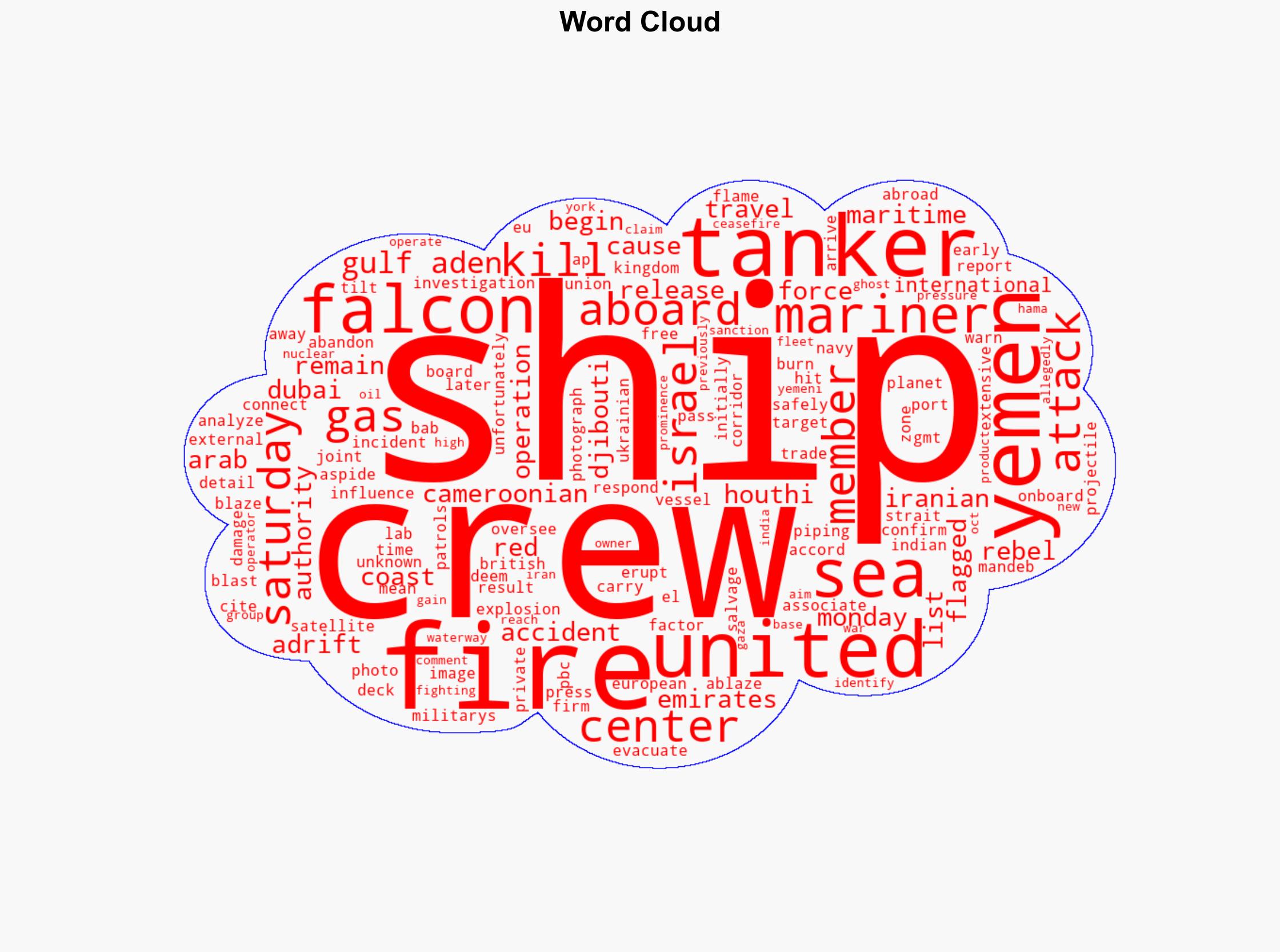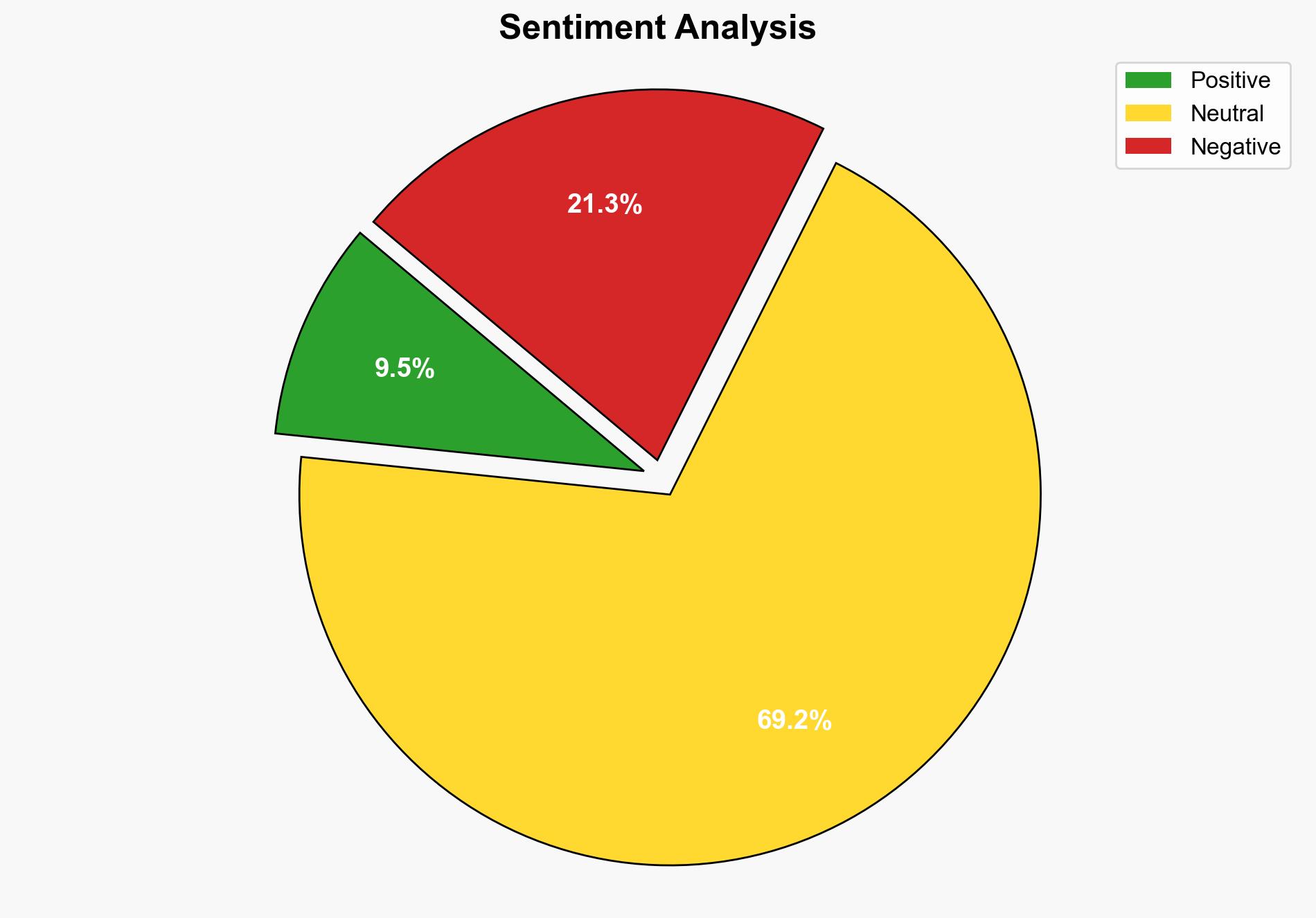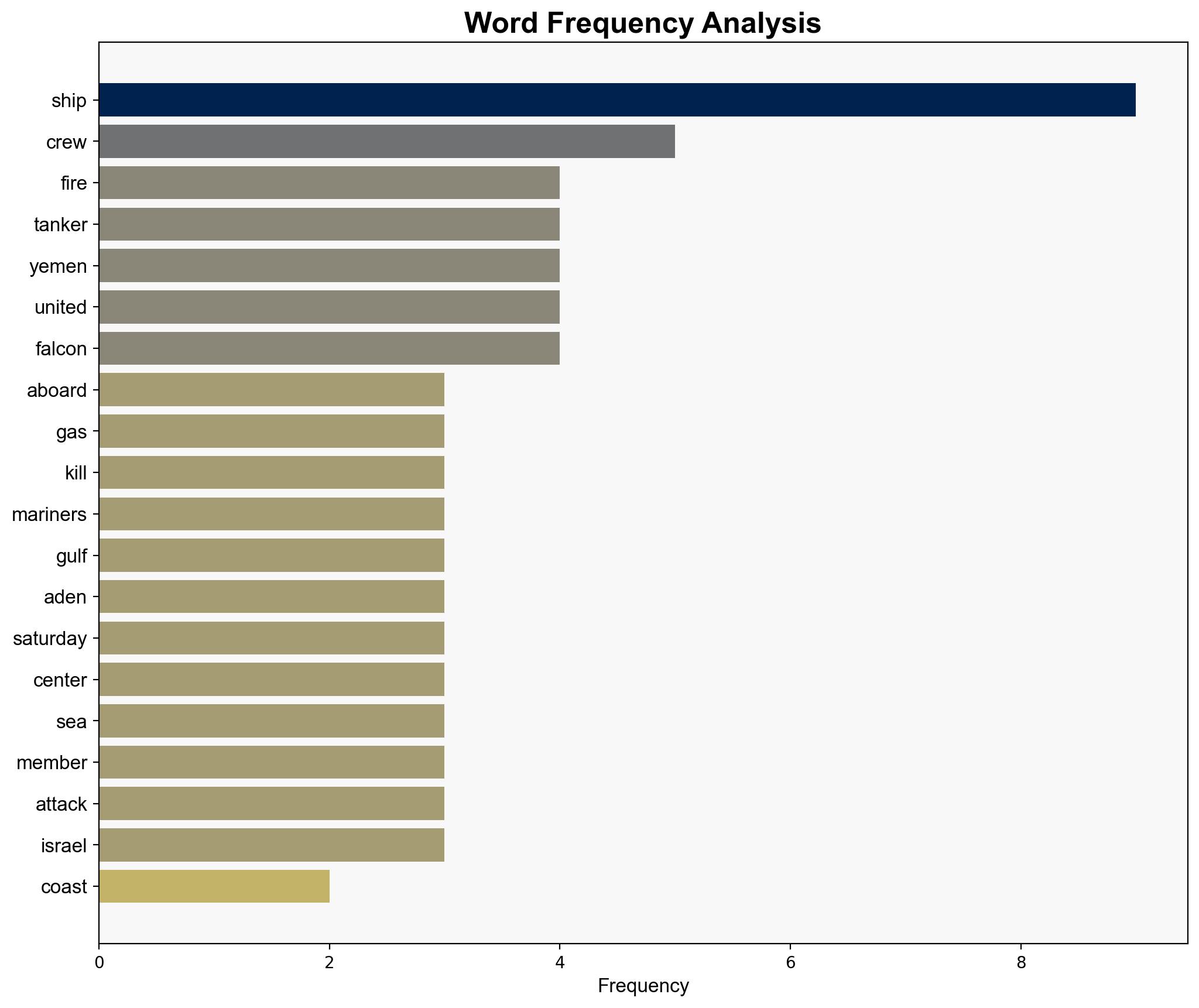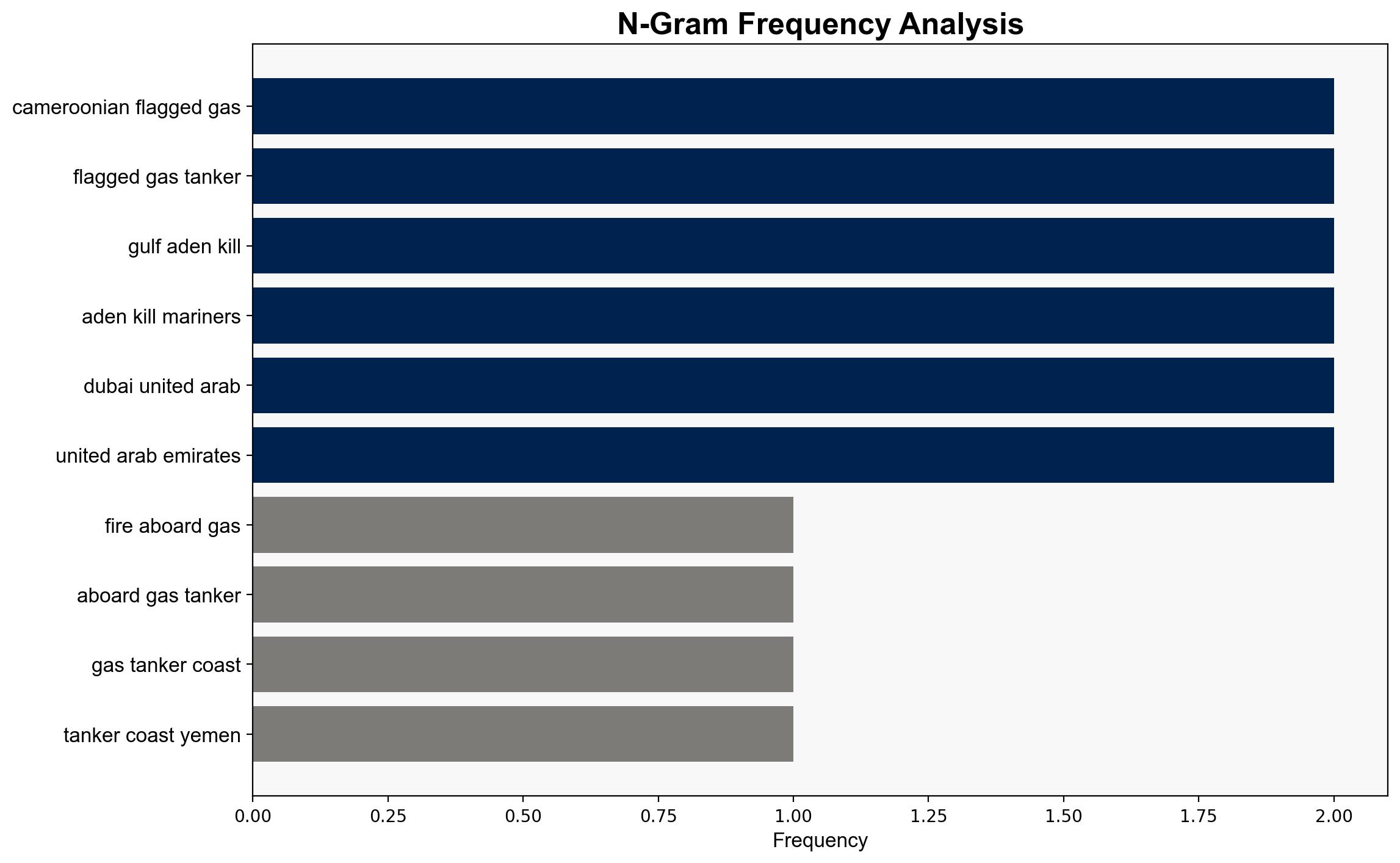A fire aboard a gas tanker off the coast of Yemen kills 2 mariners – ABC News
Published on: 2025-10-20
Intelligence Report: A fire aboard a gas tanker off the coast of Yemen kills 2 mariners – ABC News
1. BLUF (Bottom Line Up Front)
The most supported hypothesis is that the fire aboard the gas tanker was caused by an external attack, likely linked to regional tensions involving the Houthi rebels. This conclusion is drawn with moderate confidence due to the geopolitical context and recent patterns of maritime incidents in the area. Recommended action includes heightened maritime security measures and diplomatic engagement to address regional hostilities.
2. Competing Hypotheses
1. **Accidental Fire Hypothesis**: The fire was an accident resulting from an internal malfunction or human error aboard the tanker. This is supported by the initial report of an accident and the absence of direct evidence of an attack.
2. **External Attack Hypothesis**: The fire was caused by an external attack, potentially by Houthi rebels or other hostile entities. This is supported by the geopolitical context, previous attacks in the region, and initial reports suggesting the tanker was hit by a projectile.
3. Key Assumptions and Red Flags
– **Accidental Fire Hypothesis**: Assumes no hostile intent or external interference, relying heavily on crew testimonies and initial reports. Red flag: The region’s history of maritime attacks raises doubts about purely accidental causes.
– **External Attack Hypothesis**: Assumes hostile intent from regional actors, potentially influenced by ongoing conflicts. Red flag: Lack of conclusive evidence directly linking the fire to an attack.
Potential cognitive bias includes confirmation bias towards recent regional attacks, and deception indicators may involve misinformation from involved parties.
4. Implications and Strategic Risks
The incident underscores the persistent threat to maritime security in the Gulf of Aden, with potential cascading effects on international shipping routes and energy markets. Escalation could involve retaliatory actions, increased insurance costs, and heightened military presence, affecting regional stability and global trade.
5. Recommendations and Outlook
- Enhance maritime surveillance and intelligence-sharing among regional and international partners to preemptively identify threats.
- Engage in diplomatic efforts to de-escalate regional tensions, particularly involving Iran-backed groups.
- Scenario Projections:
- Best Case: Strengthened security measures deter future attacks, stabilizing the region.
- Worst Case: Continued attacks lead to significant disruptions in maritime trade and potential military conflict.
- Most Likely: Sporadic incidents persist, necessitating ongoing vigilance and adaptive security strategies.
6. Key Individuals and Entities
– Houthi rebels
– Falcon tanker crew members (Indian and Ukrainian nationals)
– United Kingdom Maritime Trade Operations
– European Union Operation ASPIDE
7. Thematic Tags
national security threats, maritime security, regional conflict, geopolitical tensions





